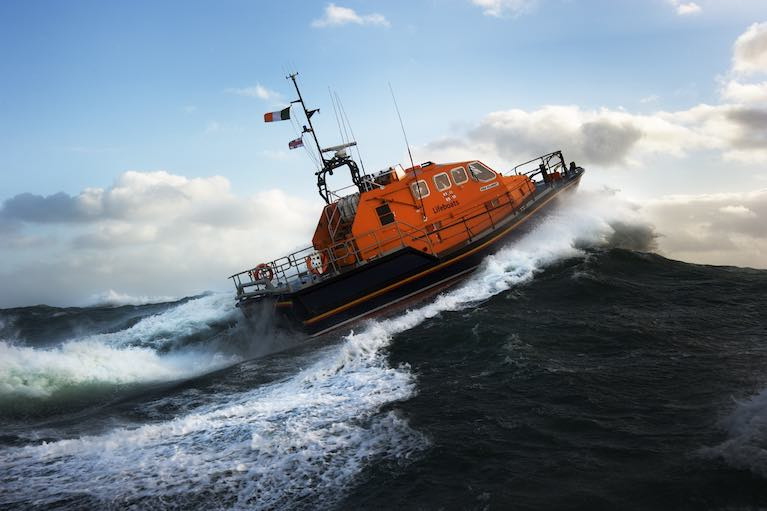The RNLI and the Coast Guard are appealing to the public to exercise caution when participating in any activity on and near the water during the Christmas and New Year period and at all times to be mindful of the restrictions in place to deal with the COVID pandemic. Many traditional Christmas and New Year swims which ordinarily had safety measures in place have been cancelled. Accordingly, anybody planning such activity should check up to date guidance and ensure that they have made appropriate safety arrangements.
The second half of 2020 saw a significant increase in water-based incidents placing extra demands on Search and Rescue providers including Coast Guard and RNLI volunteer crews. Mindful of the increased levels of participation in open water swimming both organisations are highlighting the risks of suffering cold water shock, which is a very real danger for anyone entering water which is 15°C or below. Average sea temperature around Ireland at this time of year are just 6-10°C. This can pose a risk of hypothermia, even for the most experienced of open water swimmers.
The top safety tips from the Coast Guard and the RNLI for open water swimming are:
- Always check the weather forecast and understand the local effects of wind, tides and currents.
- Never swim alone and if possible, have somebody ashore who is familiar with your plans and can observe your progress.
- Only swim in sheltered areas with which you are familiar and swim parallel to the shore.
- Stay within your depth – know your limits including how long to stay in the water
- Ensure that you are visible from the shore. Wear a brightly coloured swim cap or use a tow float to increase your visibility in the water.
- Wearing a wetsuit is advisable to help stay warm.
- Acclimatise to cold water slowly to reduce the risk of cold-water shock.
- Get warmed up afterwards. Wrap up well in extra layers of clothing
- If in doubt, don’t go out!
- Tell someone else where you’re going and when you’ll be back.
As the year draws to a close, thanks have been paid to the men and women involved in search and rescue for their incredible service throughout the year. Volunteers have been called out to help at all hours of the day and night and they have been on the frontline of saving lives and keeping people safe.
Irish Coast Guard, Head of Operations Gerard O’Flynn said: ‘We wish to say a special thank you to everybody involved in SAR for their commitment and service in these extraordinary times with a special thank you to the volunteer members of the rescue services.
He added: People love to get out and about over the Christmas and New Year period. For those who have an opportunity to go on coastal walks always remember to Stay Back Stay High Stay Dry – and this year please be especially mindful of Covid related restrictions. Open water swimming this time of the year is only for experienced participants and never ever swim alone.’
RNLI Water Safety Lead Kevin Rahill added: ‘RNLI and Coast Guard volunteers have played an enormous role this year in keeping people safe as they took to the water in greater numbers. We wish to thank everyone involved in search and rescue and their families and employers who support our volunteers.
‘No one goes into the water in the expectation of needing to be rescued but we are asking anyone considering going for a swim to understand the dangers and not take unnecessary risks so they can have a good time, safely. It is important to respect the water and there are a number of things you can do to help ensure you have an enjoyable and safe time such as not swimming alone, staying in your depth and knowing how to warm up properly afterwards, which sounds obvious but is crucial to avoid any delayed effects of the cold and hypothermia.’































































